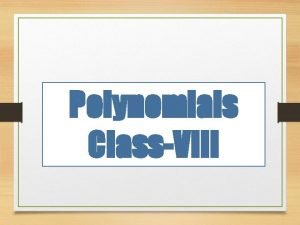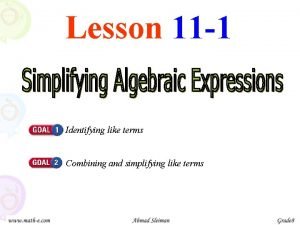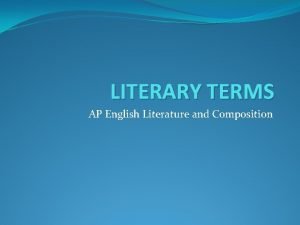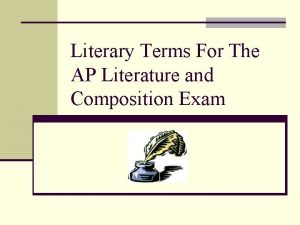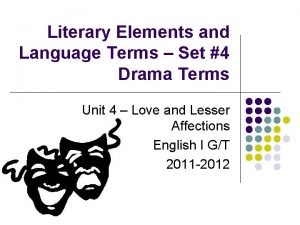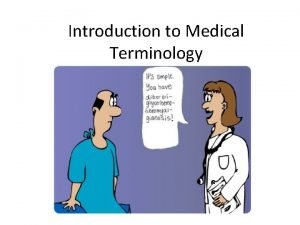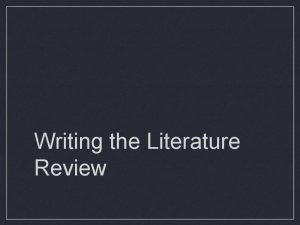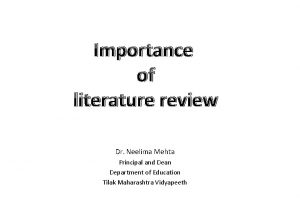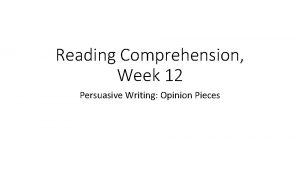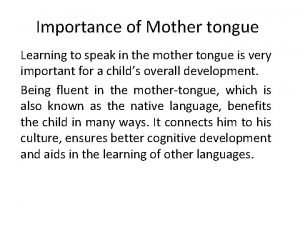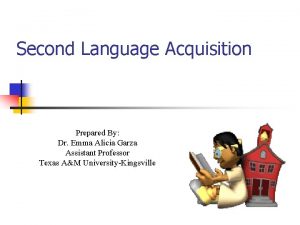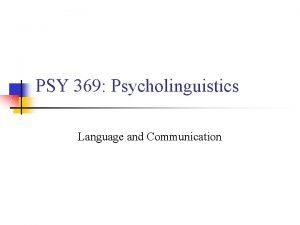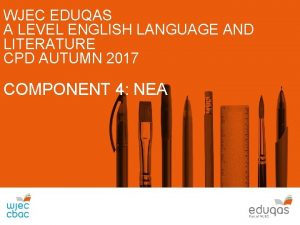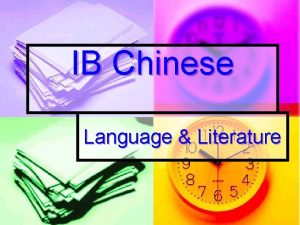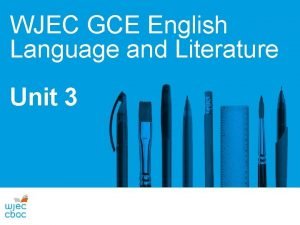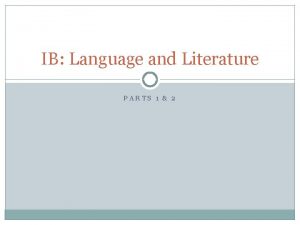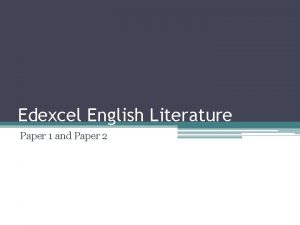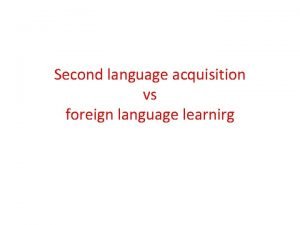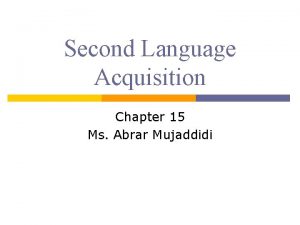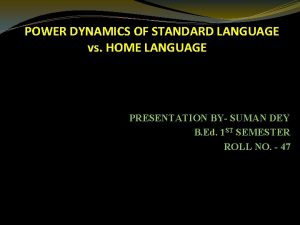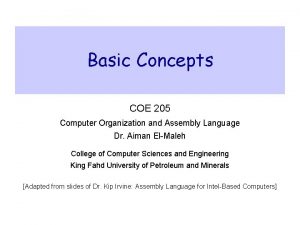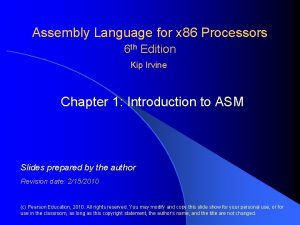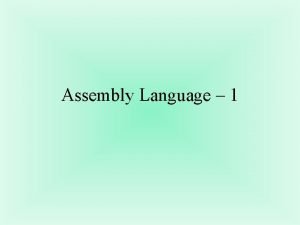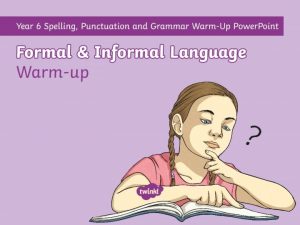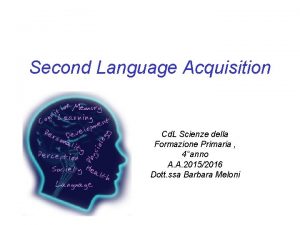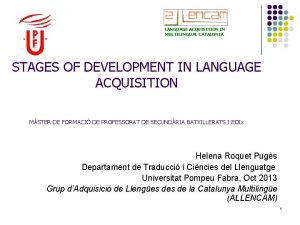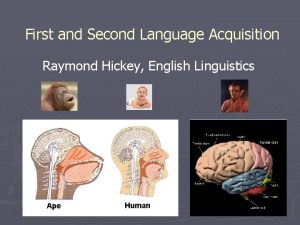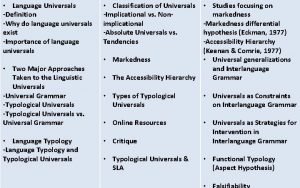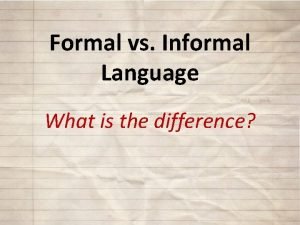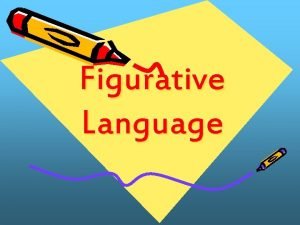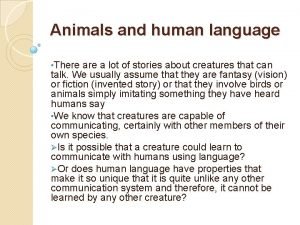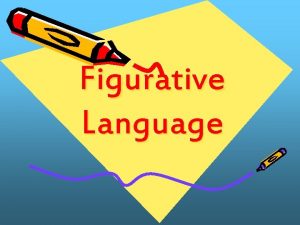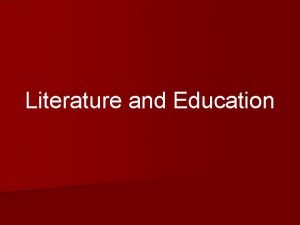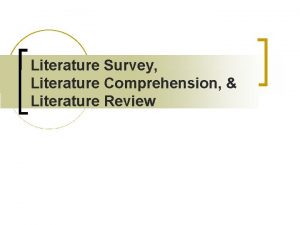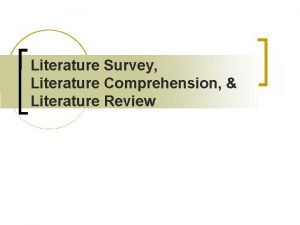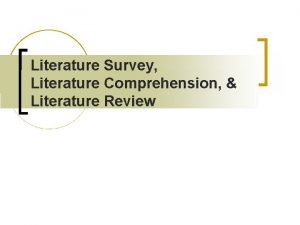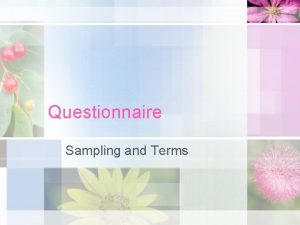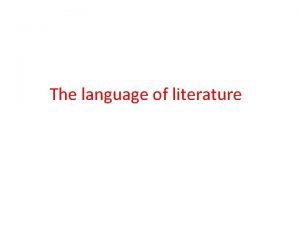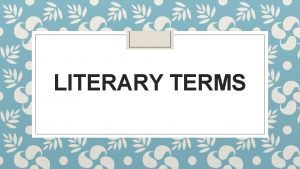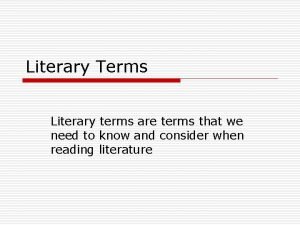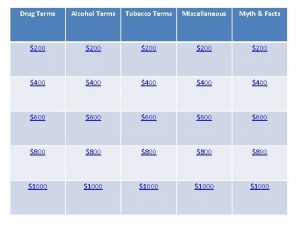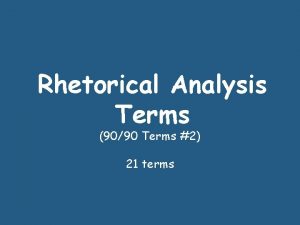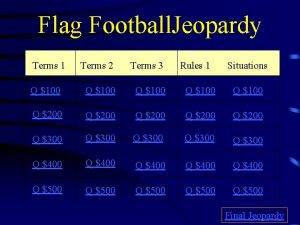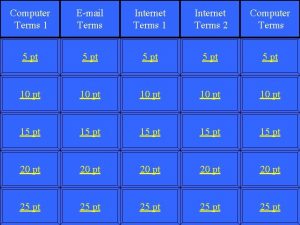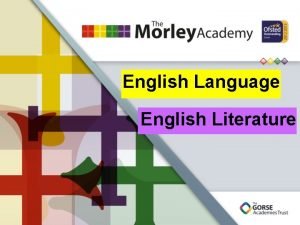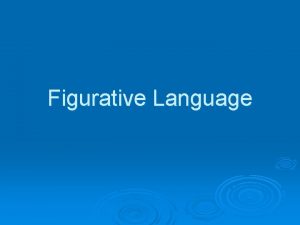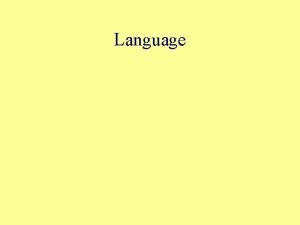AP Language Literature and Terms Importance of Literature



































- Slides: 35

AP Language Literature and Terms

Importance of Literature

Why Study Literature?

The Necessity of Studying Literature? ØThe subject of literature is human experience.

The Necessity of Studying Literature C. S. Lewis said, “We seek an enlargement of our being. We want to be more than ourselves. Each of us by nature sees the whole world from one point of view with a perspective and a selectiveness peculiar to himself. . We want to see with other eyes, to imagine with other imaginations, to feel with other hearts, as well as with our own. . We demand windows. . This, so far as I can see, is the specific value or good of literature. . . ; it admits us to experiences other than our own. . My own eyes are not enough for me, I will see through those of others. ”

The Necessity of Studying Literature Ø The Bible itself is literature – it is a piece of art.

The Necessity of Studying Literature Ø Christians with a high regard for God’s Word are often so preoccupied with its theological content they are scarcely aware of the artistic features of the Bible.

The Necessity of Studying Literature ØThe Bible encourages acquaintance with fictional literature and poetry.

The Necessity of Studying Literature ØFor recreation and enjoyment.

The Values of Imaginative Literature Ø Shows a language of concern – a vision not simply of what exists in the world, but a vision of reality as perceived by a valuing human being

Intellectual Value of Literature ü Gain an historical perspective ü Understand our own culture and civilization ü Understand people

The Value of Literature as a "Fine (Beautiful) Art" “For as God is infinitely the greatest Being, so He is allowed to be infinitely the most beautiful and excellent: and all the beauty to be found throughout the whole creation, is but the reflection of the diffused beams of that Being who hath an infinite fullness of brightness and glory; God. . . is the foundation and fountain of all being and all beauty. ” Jonathan Edwards, The Nature of True Virtue

Beauty from a Biblical Perspective Ø The Bible teaches that beauty is an attribute or perfection of God and that He is the source of beauty, just as He is the source of truth.

God as Beautiful Creator Ø We create because we are Ø The lesson to be learned from the Bible’s portrait of God as Creator is that God values beauty as well as utility. made in God’s image. Ø Our first glimpse of God in the Bible is as Creator. Ø To delight in the work of the Ø He did not create a purely functional world (the trees in the Garden of Eden were not only “good for food” but also “pleasant to the sight”). human imagination is to value the image of God in people. Ø God values beauty. “[God]. . . who put such a thing as this into the heart of the king, to beautify the house of the Lord. ”

The Usefulness of Literature Learning something from the past about how to live in our culture? Ø Classicism – reason Ø Romanticism – emotions Ø Naturalism – drives and impulses

Usefulness of Literature - Knowledge Ø Writers are sensitive observers of reality. Ø Literature is the knowledge of human experience.

Usefulness of. Literature – Knowledge of Human Experience Ø External world of physical objects Ø World of human emotions Ø General problems and/or social issues

Often, the knowledge of literature comes with greatest impact when a reader or viewer is so moved by the presentation that he or she cannot verbalize about the work of literature but only experience it

Reject This Common Model Literature = truth given to the reader to form his life/worldview

Literature is a catalyst to thought. Anyone's worldview should arise from considered and responsible deliberation.

Accept This New Model – Biblical Truth Literature/Worldview

Objectionable Elements Give a man a fish, feed him for a day; Teach a man to fish, feed him for a lifetime.

Objectionable Elements Five Categories 1. Profanity 2. Sexual perversion

Objectionable Elements – cont. 3. Lurid violence 4. Occultism

Objectionable Elements – cont. 5. Erroneous religious or philosophical assumptions

Positions on Objectionable Elements 1. Permissivist View – �allows for censorable elements in a work of compensating aesthetic qualities �allows for censorable elements because of the necessity in art of an honest view of life � Weaknesses – �too subjective and utilitarian – does not rest on absolute moral principles �ideas of the world and of life vary greatly

Positions – cont. 2. Exclusivist View – Believes that because evil is evil , any unavoidable exposure to it is wrong for even the most praiseworthy of purposes.

Exclusivist View – cont. 2. The Bible contains all objectionable elements.

Exclusivist View � Profanity � Sexual Perversion � Lurid Violence � Occultism � Erroneous Religious and Philosophical Assumptions

Exclusivist View – cont. �Weaknesses – based on a misapplication or misinterpretation of Scripture

3. Pragmatic View ü Consider some compromise is necessary if one is to get along in a fallen world ü Weaknesses ü Misapplication of I Cor. 5: 10 ü Implies that it is impossible to live a life according to the will of a holy God. ü Christians cannot accept a policy of convenience.

4. Biblical View Ø The Bible itself is the supreme literary and pedagogical model Ø The image of God in redeemed man – Christlikeness includes moral understanding

Criteria of worth Ø Principle of Gratuitousness – is the representation of evil purposeful or is it present for its own sake? Ø Principle of ExplicitnessØ is the representation of evil, if purposeful, represented in an acceptable degree? Is it more conspicuous or vivid than the purpose warrants?

Criteria of Worth cont. Ø Principle of Moral Tone is evil presented from a condemning perspective? Is it made to appear both dangerous and repulsive? What is the attitude of the work toward it?

Inoculation Analogy Ø Strength of dosage ü Amount of exposure to evil Ø Resistance of the donor ü condemning perspective provided by the teacher Ø Strength of the recipient ü readiness of the student to benefit from the negative example
 Like terms and unlike terms in polynomials
Like terms and unlike terms in polynomials Combining like terms definition
Combining like terms definition Ap english literature terms
Ap english literature terms Ap literature literary terms
Ap literature literary terms Apostrophe in literature
Apostrophe in literature Modern language medical terms
Modern language medical terms Literature review
Literature review What is literature
What is literature Importance of good literature review
Importance of good literature review Native language importance
Native language importance Persuasive writing comprehension
Persuasive writing comprehension Importance of mother tongue
Importance of mother tongue Language acquisition device
Language acquisition device Define communication and its types
Define communication and its types Eduqas a level english language and literature
Eduqas a level english language and literature Ib chinese language and literature paper 1
Ib chinese language and literature paper 1 Language english
Language english Wjec unit 3 english language
Wjec unit 3 english language Eduqas a level english language past papers
Eduqas a level english language past papers Ib english language and literature part 3
Ib english language and literature part 3 Edexcel english literature a level past papers
Edexcel english literature a level past papers Acquisition vs learning
Acquisition vs learning Difference between second language and foreign language
Difference between second language and foreign language What language you speak at home
What language you speak at home Assembler in computer
Assembler in computer Difference between assembly language and machine language
Difference between assembly language and machine language Assembly languages list
Assembly languages list Difference between formal and informal language
Difference between formal and informal language What is the language in
What is the language in Difference of first language and second language
Difference of first language and second language Language
Language Language typology and language universals
Language typology and language universals Carta formal vs informal
Carta formal vs informal Literal vs. figurative
Literal vs. figurative Arbitrariness in human language and animal language
Arbitrariness in human language and animal language Crack” went the bat as the pitcher hit a home run.
Crack” went the bat as the pitcher hit a home run.
